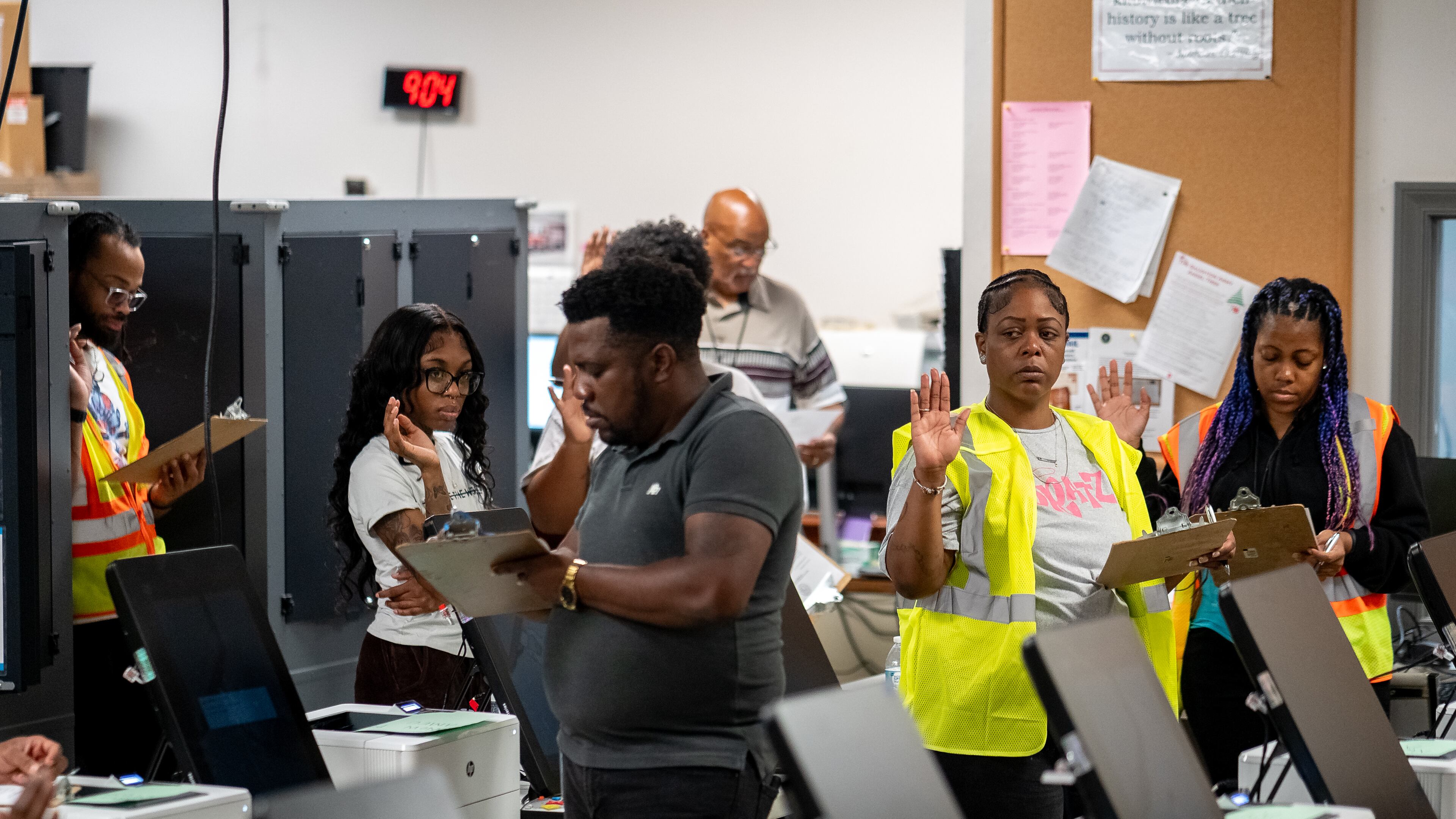Georgia tests its touchscreens and scanners to make sure they will work on Election Day

Every touchscreen, ballot scanner and check-in tablet in Georgia is being tested in the run-up to the presidential election, a broad attempt to find and eliminate any problems before voting begins.
For DeKalb County Election Director Keisha Smith, that means examining thousands of pieces of equipment to help ensure they will accurately tabulate results.
“When you’re surprised is when you haven’t prepared,” Smith said, as several weeks of testing started Monday. “This is where we want to catch it.”
Testing of voting machines is a vital step amid skepticism of elections, especially among Republicans since Donald Trump falsely claimed that the election was stolen.

The testing process, called logic and accuracy testing, is important but tedious.
Election workers create test ballots by systematically selecting various candidates on touchscreen voting machines manufactured by Dominion Voting Systems, which print out paper ballots. Once all the test ballots are completed, they are scanned, counted and compared to the expected test results.
Critics of Georgia’s voting technology, including advocacy groups seeking hand-marked paper ballots, say the testing fails to prevent possible programming errors.
“Georgia’s L&A (logic and accuracy) testing is dangerously insufficient,” said Marilyn Marks, who leads the group Coalition for Good Governance. “The secretary of state’s instructions allow for shortcuts that test only a small fraction of the touchscreen ballot selections — far less than what Georgia law mandates.”
During the testing, election workers fill out test ballots and choose each of the six presidential candidates, along with candidates in various other races. The candidates are independent Claudia De la Cruz, Democrat Kamala Harris, Jill Stein of the Green Party, Republican Donald Trump, Libertarian Chase Oliver and independent Cornel West.
But the testing doesn’t evaluate every possible combination of candidate choices — from president to county school board — on every machine, which means problems could be missed, Marks said. Testing also wouldn’t necessarily detect if malware were installed, and preelection testing doesn’t guarantee that machines operate correctly on Election Day, she said
There’s no indication that Georgia’s voting machines have ever been tampered with during an election.
However, programming errors have led to a miscount in Georgia before, such as when a hand recount overturned the preliminary results in a Democratic primary for seat on the DeKalb County Commission in 2022. In that race, a series of changes to voting equipment after a candidate dropped out created a “ballot shift,” where voting machines counted votes for the wrong candidate.
More rigorous logic and accuracy testing could have caught the problem, Marks said. State law requires testing to assess that each voting device correctly record votes cast for all races and all ballot questions.
In another well-known example, votes in a 2023 election for state appeals court judges in Northampton County, Pennsylvania, were flipped on a printed summary shown to voters. While ballots were printed out incorrectly, election officials said votes were properly counted by voting machines.

Georgia Secretary of State Brad Raffensperger said the state safeguards elections through logic and accuracy testing, a hand-count election audit, another audit that scans every ballot’s text and Election Day monitoring. A full statewide recount can be requested if a candidate loses by less than half a percent, as Trump did in the 2020 election.
“We just want everyone to feel comfortable that you’re going to have a fair, accurate and fast election here in Georgia,” Raffensperger said during a voting machine “health check” in DeKalb on Tuesday, an additional layer of testing conducted in more than two dozen counties. “You can trust the results in Georgia.”
A federal judge overseeing an election security lawsuit by Marks faulted Georgia’s logic and accuracy testing in an October 2020 court order, calling it a “serious shortcut” and recommended changes in procedures.
The State Election Board rejected Marks’ proposal for a more comprehensive evaluation last December, which would have required testing each candidate selection, contest and ballot style on every touchscreen. The board’s acting chair said the extensive time and effort to implement the proposal would have amounted to an “unfunded mandate” on county election staff.
Logic and accuracy testing started in some counties last week and will continue for weeks leading up to the election. The testing is open to the public.
In all, county election offices across Georgia will test over 30,000 touchscreens and 4,000 ballot scanners before early voting begins Oct. 15 and Election Day on Nov. 5.



